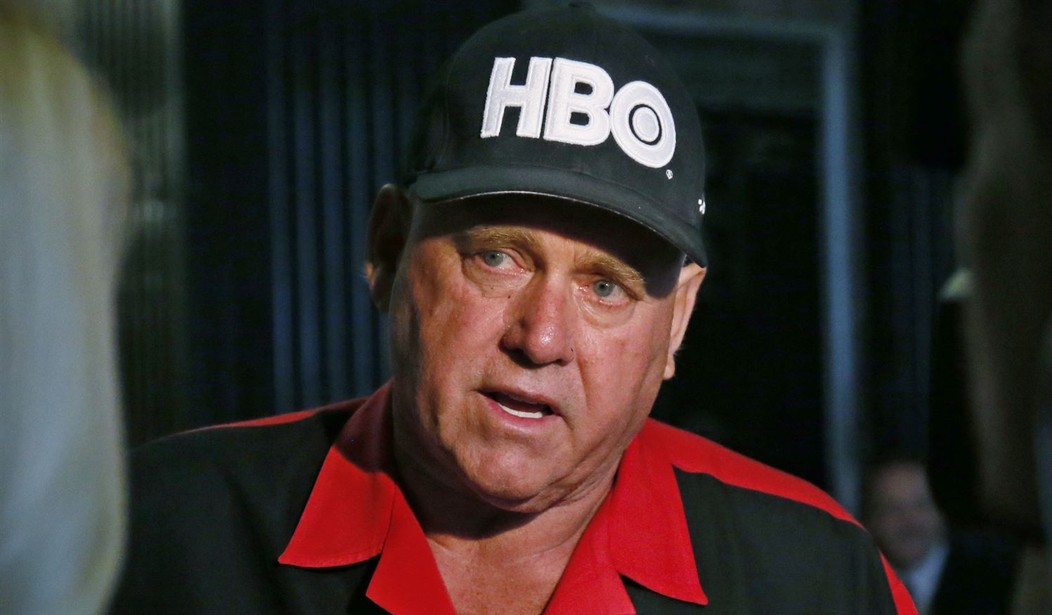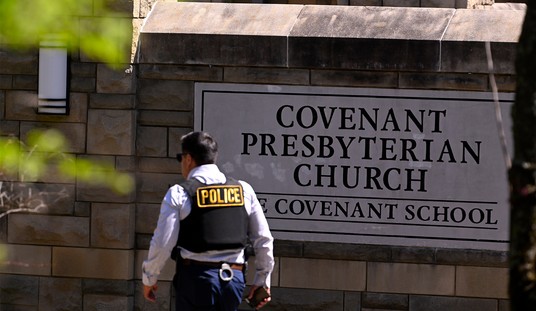Dennis Hof, the notorious pimp in Nevada, has died.
In his wake, he leaves a legacy of harm.
Hof rose to national notoriety by running several of Nevada’s legal brothels, and starring in the HBO reality series Cathouse. While some have described Hof as a “bombastic” personality, the reality is that Hof maliciously made his living exploiting women, sometimes even specifically targeting those who were desperate because of crushing student debt. At the time of his death, he was nominated to the GOP state Senate in Nevada; accused of sexually assaulting a woman; and was under investigation for sex trafficking in his brothels.
Hof’s philosophy was perhaps best described by himself, when he equated selling women’s bodies to men with selling hamburgers at McDonald's.
His misogynistic use of women was characterized as “soulless” by a young woman who worked in one of Hof’s brothels. Women in brothels were even expected to have sex with Hoff, because, as one other woman said, “Well, you want Daddy to like you. You won’t have a very good time if he doesn’t, so if he wants you to [have sex with him], you definitely should.”
Another woman spoke about her time in two Nevada legal brothels, stating:
“[We] did not have the “independent contractor” freedom to turn down buyers. Management required us to line up when someone arrived at the brothel. Once picked from the lineup, we would bring the sex buyer back to our room where he was allowed to do whatever he wanted with us.
"All of our rooms were wired for sound, which they tell people is for the safety of the women. That’s not the real reason. The brothel management listened to all our negotiations — not to ensure our safety, but to ensure that the women are not “blowing calls,” cheating them or turning down customers. As much as they like to say you can turn down customers, that simply is not true.”
Recommended
This woman’s story is not unique. Several survivors of prostitution have spoken out about its inherently degrading and harmful nature, and reams of research shows that women in prostitution experience high levels of physical violence, sexual violence, and Post-Traumatic Stress Disorder.
Nonetheless there will be many people who step up to defend Hof’s legacy as a man who merely profited off of women’s “consenting choice” to enter into prostitution.
But here’s the reality.
The argument that prostitution is an empowering venture disintegrates under any serious analysis in light of the #MeToo movement.
The #MeToo movement revealed the complexity around “consenting choice” when paired with dynamics such as the imbalance of power. The obvious example is Harvey Weinstein who sexually assaulted and harassed countless women. One woman summarized the experiences of many when she stated, “He just cut right to the chase and said: ‘These are contracts for my next three films. I’ll sign them, but I want you to have a threesome with me and my assistant’.”
At the time, the public immediately recognized that Weinstein’s ploy was an exploitation of circumstances—intimidating power differences and threatened lack of future economic opportunity—and so his behavior was abusive because he attempted to have sex on those grounds.
The reality is that if someone wants to have sex with you, they do it.
If you have to pay a person, whether with money, opportunity, promotion, or other things of value, then that means that the person did not want to have sex with you.
It’s clear, then, that Dennis Hof and Harvey Weinstein actually have a lot in common.
Both of them lived lives defined by male sexual entitlement—the idea that “no” means “convince me” or “incentivize me.”
Meaningful consent to sex cannot exist where payment is required.
And sure, some could argue that payment isn’t considered coercion for other jobs like being an administrative assistant. But #MeToo showed that our culture recognizes sex is different from work. When Harvey Weinstein asked a woman to perform oral sex on him, it was recognized that this was sexual harassment, not a promotion. Nobody debated that point.
So, as we sort through the legacy of Dennis Hof, let’s not pretend like the last year hasn’t happened. Let’s not view women who engage in prostitution as “deserving what they get” and as outside society’s social responsibility to protect. Let’s not ignore the fact that the practice of men buying their ways into women’s bodies is wholly inconsistent with a society striving to push back against male sexual entitlement.
Let’s keep a clear view of the Dennis Hof legacy, side-by-side with the likes of Harvey Weinstein.
Both of their legacies are dark blots in our history. Let’s remember them as such.
























Join the conversation as a VIP Member